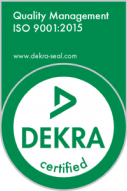Salesforce Education Cloud is a cloud-based platform designed specifically for the education industry. It provides tools and resources that can help educators, administrators, and students manage, track, and analyze academic data, as well as communicate and collaborate more effectively. Some specific use cases for Salesforce Education Cloud include:
- Student and academic data management: Education Cloud can be used to store and manage student records, including demographics, grades, transcripts, and other relevant information. This can help educators and administrators keep track of student progress and identify areas for improvement.
- Course and program management: Education Cloud can be used to create and manage courses and programs, including schedules, curricula, and assessments. This can help educators and administrators track student progress and ensure that students are meeting academic goals.
- Collaboration and communication: Education Cloud provides platform for collaboration and communication, such as group chat and file sharing, which can be used by educators, students, and administrators to work together more effectively.
- Analytics and reporting: Education Cloud includes a range of analytics and reporting tools that can be used to track student progress and identify areas for improvement. This can help educators and administrators make data-driven decisions about how to best support student success.
There are several reasons why higher education institutions should consider implementing Salesforce Education Cloud:
- Improved student engagement: Salesforce Education Cloud provides tools and resources to help higher education institutions better engage with their students. By using the platform, institutions can track student interactions, provide personalized support, and keep students informed about important updates and events. This can help to improve student satisfaction and retention rates.
- Increased efficiency: Salesforce Education Cloud can help higher education institutions streamline their operations and increase efficiency. By using the platform, institutions can automate many administrative tasks, such as scheduling, course registration, and student record-keeping. This can free up time and resources that can be better utilized in other areas of the business.
- Enhanced collaboration: Salesforce Education Cloud also provides tools and resources to help higher education institutions improve collaboration and communication between faculty, staff, and students. By using the platform, institutions can easily share documents, collaborate on projects, and communicate with students in real-time.
- Better data management: Salesforce Education Cloud can also help higher education institutions improve their data management processes. By using the platform, institutions can easily store and access student data, such as transcripts, enrollment records, and course schedules. This can help to improve decision-making and better track student progress.
- Configuration: Salesforce Education Cloud is highly configurable, which means that higher education institutions can tailor the platform to meet their specific needs. Institutions can choose which features and modules to use and can integrate the platform with other systems and tools.
In conclusion, Salesforce Education Cloud can provide numerous benefits to higher education institutions, including improved student engagement, increased efficiency, enhanced collaboration, better data management, and customization. By implementing Salesforce Education Cloud, higher education institutions can streamline their operations and better serve their students.
About Columbia Advisory Group:
Columbia Advisory Group (CAG) is a leading Information Technology (IT) consulting firm. CAG’s team has assessed and helped improve the performance of more than 300 technology organizations and IT departments, including many higher education institutions, state agencies, and Fortune 50 customers. Practice specialty areas include Infrastructure, IT Service Management, Cybersecurity, and A/V Services. CAG improves business outcomes with IT insights and expert technical support. Based in Dallas, Texas, CAG works extensively with clients throughout the U.S. Contact us at info@columbiaadvisory.com.
Sameer Vitvekar
MS in Business Analytics, Accounting, and Economics

